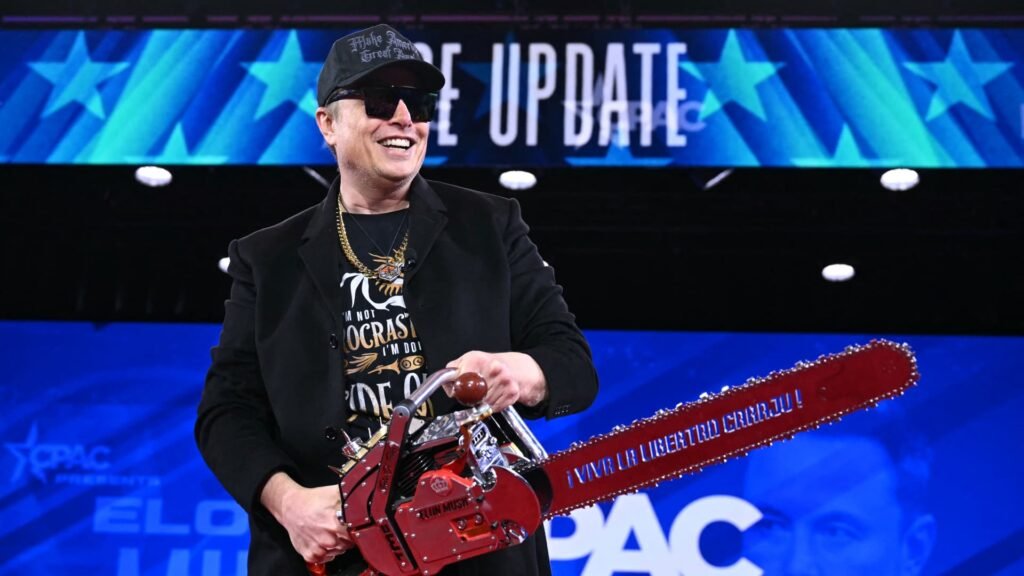I wanted to flag your attention to this piece by Jonathan Last at The Bulwark: The Washington Post is dying. I can tell you “how.” But not “why.” I’m not sure the central assertion is a big surprise to people. But Last does a good job at running through the details, the steps on the path of descent. He puts some focus on legacy systems – suboptimal arrangements, structures, compromises that any organization builds up over time. I first thought he was distracting from the decisions made under Bezos. But I think he’s right to put some focus on them. These aren’t the reason the Post is dying. But this legacy debt – which most big and old organizations have – adds to the challenges that Bezos would have had even if he weren’t making terrible decisions.
I’m writing this because I want to point to one of the “why” reasons. There are others are tied to politics, Trump, the oligarchy, etc. But a big driver is the consultants. Bezos bought the Post in a different era, as one part fun thing to do and one part de facto social philanthropy. In 2013 Bezos was the new Carnegie, Morgan, Vanderbilt. The Post’s historic owners, the Graham Family, had the best of intentions but lacked the resources to bring the Post into the modern age. It had become a classic undercapitalized business, disrupted by a newer, faster and more mercenary class of DC publications. Bezos paid a generous price for it and I think saw this as fun and kind of a good thing that an ultra rich guy should do.
But Bezos had something I’ve seen before, close up, many times. The super rich don’t like losing money, even if it’s at scales that are essentially meaningless to them. This is ironic. Perhaps it’s perverse. But it’s not surprising. You don’t get to be a centi-billionaire by not sweating losing money. It’s deep in the DNA. For several years the Post was hot and growing. That was fun. Then it wasn’t. It started not being hot and losing money. And Bezos decided he’d had enough.
This part of the narrative is pretty straightforward and uncontroversial. Why did things go wrong when Bezos got involved and started making big changes? A big part of the answer is the consultants, the particular ones a guy like Bezos would gravitate toward. In short he gravitated toward the ones who speak billionaire. Which is to say, the language of leverage, commercial paper, efficiencies, disruption, innovation, the big idea, etc. Why would he go to those people? Because that’s his social world. To the extent Bezos has peers they live in that world, work with those consultants, think in that way. It all makes sense.
One of the Post’s recent big ideas is something called ‘Ripple’. The idea is basically that the Post will make deals with every niche and non-niche publication out there, reprint their stuff in one mega take-all-comers ‘opinion’ section and if it makes any money the partner publications get a small cut of the revenue. The Times got wind of this and wrote an article about it the main point of which seemed to be to expose the Post to ridicule. The Times is completely slimy about running attacks on competitors as “media stories”. But here it was totally merited. At some point earlier I heard that we’d been contacted by ‘Ripple’. Notably we weren’t even contacted by someone at the Post but by some consultant working for the Post. We politely laughed at them and said no.
I won’t belabor the point but this is not an idea you’d come up with if you’d been paying attention to anything happening in the news business for the last decade. The media world today, certainly in digital media, is about strong brands that can sustain paid subscriptions either at a mass or niche level. For the Post, ‘Ripple’ is brand damaging; for any viable publisher the Post might contract with that publisher probably doesn’t want to be associated with the Post anyway. It cuts against virtually everyone’s business strategy. There’s also no money in the whole concept. It’s a model that was viable a decade again and even more 15 years ago. But changes in the ad and search economies killed its logic. The players in that space are half dead zombie brands like MSN and Yahoo.
The Post also had the idea of a “third newsroom”. So like there’s the news desk and there’s the opinion desk and then there’s this other thing, the third thing. As best I could tell this ‘third thing’ was basically cool stuff that people will actually want to read or watch, since no one wants to read hard news and opinion spurs controversy. Not that those last two assumptions are valid to a degree. But they’re not assumptions that are very helpful if you’re going is to figure out a viable business model in the news business. Earlier this week the Post announced they were scrapping the whole idea, seemingly before it had gotten off the drawing board. So a year’s worth of time thinking about a dumb idea leading to the toss the whole idea in the trash.
You get ideas like this from consultants who speak billionaire and mostly aren’t actually rooted in a meaningful way in the news business. And here I don’t mean ‘journalism’ in all the touchy-feely and important meanings of the term. I mean the more brass tacks reality of the news business, which is different from ‘journalism’ while also being the substrate journalism requires for its existence. I know this because I’ve been dealing in various ways with these people for more than twenty years. They have these ideas because like Bezos they are heavily plugged into the tech business, its assumptions, its business models. Critically, they are hyper-focused on scale and efficiencies – two things which can be positives but are mostly neither here nor there in terms of the challenges facing most news publications. (Obviously, you want to use your cash as efficiently as possible. But marginal efficiency gains aren’t why news publications live or die.)
What’s happening at the Post now – I’m surprised more people haven’t drawn the comparison – is sort of comparable to the phantasmagoria of rake stomps which took place at The New Republic after Facebook billionaire Chris Hughes purchased it in 2012. There too there was a similar trajectory of first wanting to support and cultivate a historic media jewel, followed by getting cranky and fidgety, deciding he didn’t like losing money, bringing in tech billionaire-speaking tech consultants and executives, having everyone quit and continuing for a couple years of clown show inferno before Hughes sold TNR to someone else.
Since these owners are pretty much always faced on the other side by often storied journalists saying they’re destroying something of great value you might think that I assume those folks know the right strategy. They don’t. Certainly not as a group. My sympathies are always with those folks. But that doesn’t mean they have any clearer idea either of how to build a sustainable business or, for that matter, what people are interested in reading. The journalists wanted to be treated well and do what they understand to be good journalism. Those are important goals and ones that can fit with a vibrant business model. But in themselves they don’t provide a clear guide to how to build one.
I know this is sounding like an everyone is stupid but me piece. And … well, it’s at least not only that. Running a successful digital media operation is really, really hard. Most of our ideas about how journalism is supposed to work in business terms are the product of specific technological and business factors that were undone at the turn of the century. To cite just the most obvious example, most people’s idea of what print (or we should say now ‘words’) journalism should be is based on the metropolitan daily paper. But that existed because for quite a few decades one or two companies in a very capital-intensive business could have a de facto monopoly over most commercial speech in a major metropolitan area. That was a lucrative and stable business to be in. But the internet destroyed it. Everyone’s been trying to build something else ever since, with pretty uneven luck. And it all got harder when the tech monopolies became mature about a decade ago.
Bezos got antsy about his money-losing business. He’s also reacting to the political needs of his other businesses (a big factor I’m not addressing in this post). And he’s defaulting to what was probably the biggest error of the first two decades of the 21st century on the business side of the journalism business: the idea that the dynamics, business concepts and mores of the tech world were applicable to the news business. They’re mostly not. And here we mean not the “media” business, to which there is some application, but the news business. Again, not the same thing. Bezos is clearly a really smart and able guy. But since the Post is maybe his 5 or 6th priority he’s even more likely than he might normally be to default to his comfort level assumptions, that the news business is basically like tech and the people he’ll hire are the people who speak his language, which is billionaire.





